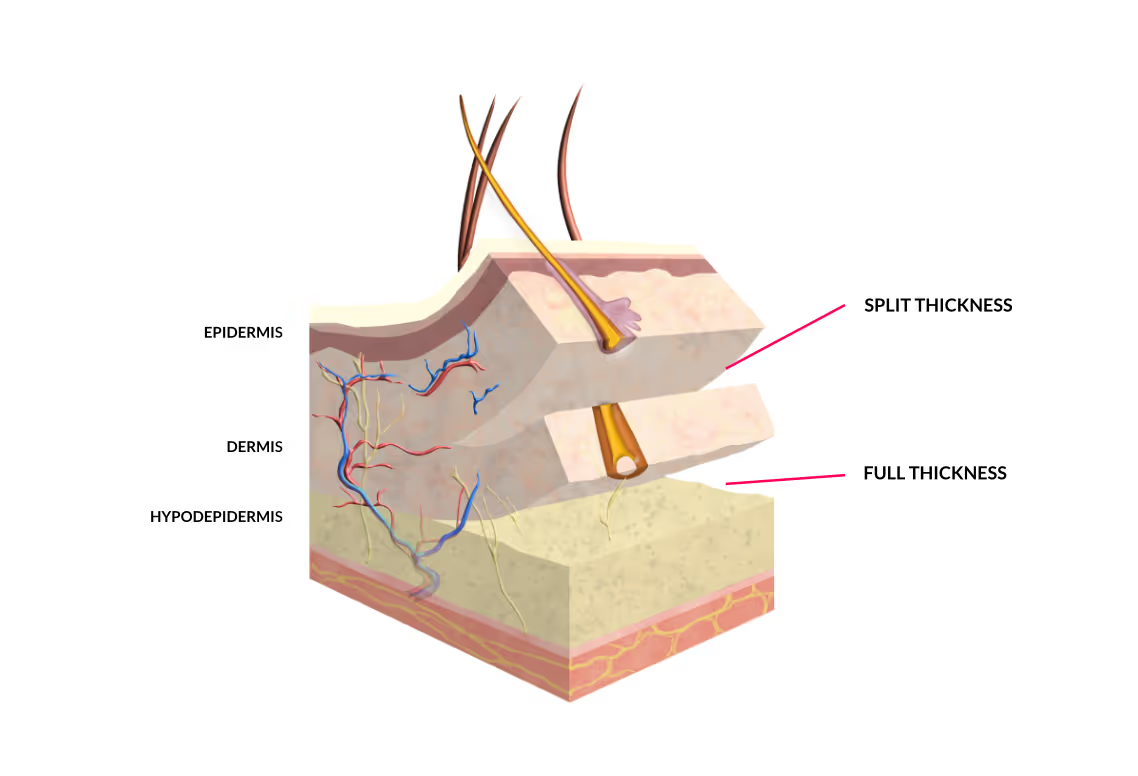
Our plastic surgeons, Mr Adam Bialostocki and Mr Brandon Adams, have extensive experience in managing even the most complex skin cancer problems, including melanoma, basal cell carcinoma and squamous cell carcinoma. They hone a comprehensive range of methods of repair and reconstuction so you can be assured that if your cancer excision (removal) is extensive, then the best repair will be available. Common skin cancer surgery techniques used for treating melanoma and other skin cancers include: direct closure, skin flaps, skin grafts or microsurgery techniques. Complications of skin cancer surgery include: scars, wound healing problems, graft or flap failure, asymmetry or distortion, incomplete excision, and the need for revision or second surgery.
Plastic and reconstructive surgery is a specialised branch of medicine which requires many years of training. Following medical school both Mr Adam Bialostocki and Mr Brandon Adams undertook near 10 years of additional training and were awarded a Fellowship in Plastic and Reconstructive Surgery (FRACS). They both went on to undertake training in aesthetic (cosmetic) surgery and complex reconstructive surgery with leading experts.
If your surgery requires implants or a special post-operative garment then these will have a cost associated with them.
Your follow up at six weeks, including any wound care and appointments, is included in your surgeon's fees. Costs for revision surgery is not included.
To perform safe surgery a high quality operating facility is required. Extensive surgery requires overnight hospital stays with skilled nurses.
Private hospitals charge for time used in the operating theatre, recovery time and day stay or overnight hospital stays. In addition they charge for all equipment used such as sutures, dressings, disposable instruments and drapes.
Mr Adams and Mr Bialostocki only operate at private hospitals with highly trained nursing staff who care for you after your operation in recovery, and on the ward if you stay overnight.
Any surgery requiring a general anaesthetic (going to sleep for surgery) or sedation requires a skilled anaesthetist. Anaesthetists are skilled doctors who require at least seven years training after medical school to achieve the highest standards of skill and safely.
Your comfort and safety is the result of team work between all of the doctors and nurses who will care for you. If you have complex medical conditions you may need additional assessments prior to surgery.
Most of the time surgery goes well and wounds heal without problems. However, no surgical treatment is completely risk free. So, if you are having elective or cosmetic surgery it is especially important that you understand this. The general complications of surgery which occur with some regularity include:
If there is a complication that requires further surgery – you or your insurer will be responsible for any further costs.
The estimates of cost provided are estimates only and are not based on what is needed by any particular patient. If surgery is unexpectedly complex it may take longer then hospital and anaesthetic costs will increase. If a complication occurs and requires surgery there will be costs associated with repeat surgery. Mr Bialostocki and Mr Adams do not control the hospital or anaesthetic costs.